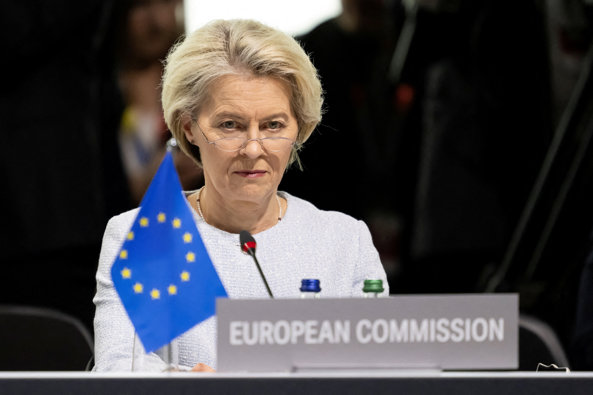
EU Warns of Tariff Retaliation Plan
European Commission President Ursula von der Leyen made clear on Tuesday that the European Union is prepared to retaliate if the United States moves forward with its proposed reciprocal tariffs. Speaking at the European Parliament Plenary meeting in Strasbourg, von der Leyen stated that the EU did not initiate the current trade tensions, but is fully equipped to respond if provoked.
“We do not necessarily want to retaliate. But if it is necessary, we have a strong plan to retaliate and we will use it,” she asserted. Her comments come just one day before U.S. President Donald Trump’s new tariff measures are set to go into effect worldwide.
The European leader emphasized that the bloc prefers dialogue over confrontation. “Our objective is a negotiated solution. But of course, if need be, we will protect our interests, our people, and our companies,” von der Leyen stated. She also warned that the tariffs would only serve to increase inflation, counteracting the economic goals of both sides.
The EU’s statement signals a firm but measured stance, aiming to avoid an all-out trade war while still standing ready to defend its economic interests. While specifics of the EU's potential retaliatory measures were not disclosed, officials suggest the response would be comprehensive and targeted toward sectors impacted by the U.S. tariffs.
Trump’s administration has argued that the reciprocal tariffs are meant to balance trade and prevent exploitation of U.S. markets. However, critics warn that such moves risk triggering tit-for-tat escalations that could destabilize global markets and hurt consumers through increased prices.
Von der Leyen’s remarks reflect growing concern among European policymakers who fear the fallout from heightened trade barriers. The European Commission has been consulting with member states to finalize a unified response, pending final implementation of the U.S. measures.
As global economic tensions rise, the coming days will be critical in determining whether the situation leads to a negotiated settlement or escalates into a wider economic confrontation between the United States and the European Union.






